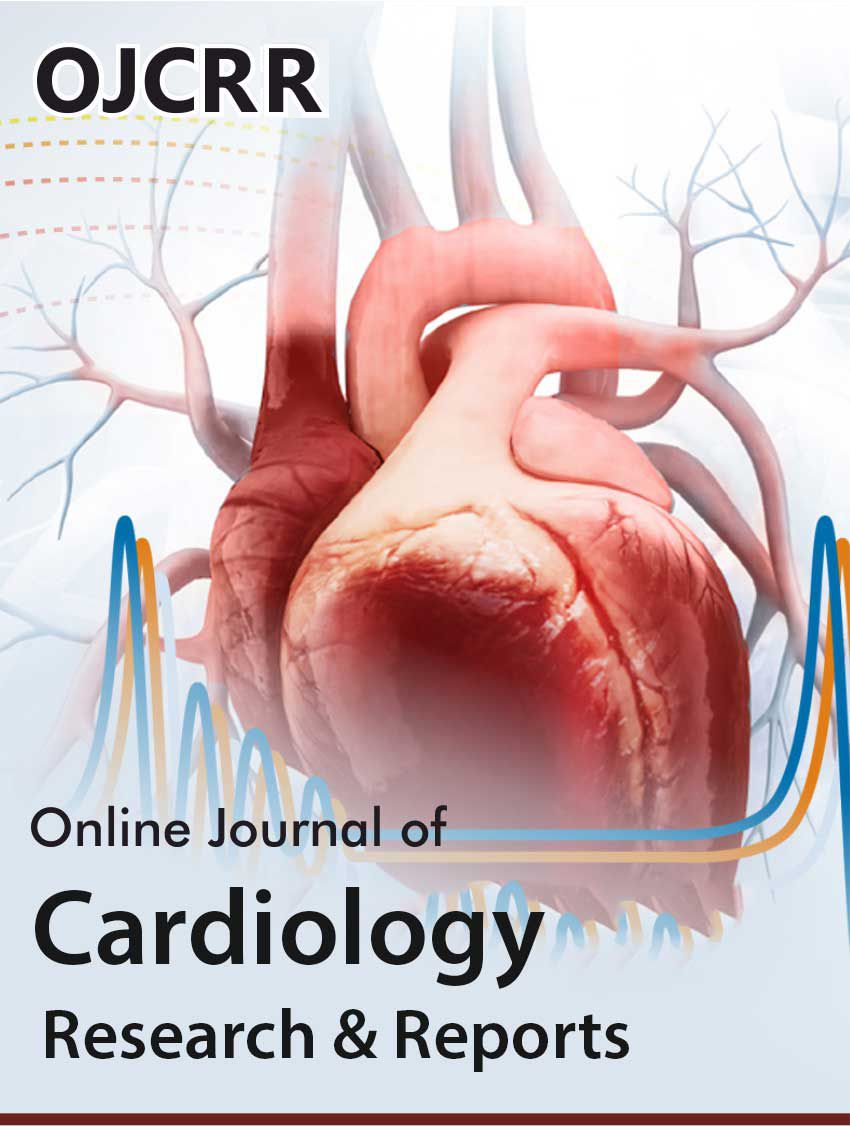 Case Report
Case Report
Cardio Metabolic Overrun in A Context of Covid 19: A Real Problem of Care in Sub-Saharian Africa
Diop KR1*, Beye SM2, Mingou JS1, Diouf Y1, Ndiaye M3, Diop CMBM1, Ndiaye PG1, Diallo SD1, Akanni S1, Sarr SA1, Fatou AW1, Bodian M1, Ndiaye MB1, Kane AD1,2, Diao M1, Kane A3 and Pouye A4
1Department of Cardiology, Aristide Le Dantec Hospital, Senegal
2Department of Cardiology, Regional Hospital of Saint Louis, Senegal
3Department of Cardiology, Dallal Jamm Hospital, Senegal
4Clinique Medicale 1 Aristide Le Dantec Hospital, Senegal
Diop KR, Department of Cardiology, Aristide Le Dantec Hospital, Dakar, Senegal.
Received Date:October 01, 2020; Published Date:November 12, 2020
Abstract
Introduction:b> Coronavirus disease (COVID-19) is a real public health problem around the world. The first case was reported in Wuhan, China in December 2019.
Case presentation:b> It was a 31-year-old patient without cardiovascular risk factors and pathological history. He was hospitalized in an Epidemic Treatment Center (ETC) for an asymptomatic infection with SARS-CoV2 (Acute Severe Respiratory Syndrome Coronavirus 2). On the sixth day of his hospitalization, He developed inaugural decompensated diabetes under keto-acidosis mode, successfully treated by insuline and rehydratation. A week later, he presented a typical chest pain, during rest. The hemodynamic was stable, the physical examination found an irregular tachycardia. Standard electrocardiogram (ECG) showed ST elevation on anterior leads and atrial flutter with variable conduction (2/1, 3/1). In this context of COVID 19 in ETC, there was no possibilities for carrying out additional examinations: transthoracic echocardiography, coronary angiography or magnetic resonance imaging. We have in this context of typical anginal pain and electrical abnormalities, considered as an acute coronary syndrome with elevated and a pharmacological revascularization strategy has been initiated without success. The atrial flutter was successfully traited by a biphasic cardioversion in a context of hemodynamic instability.
Conclusion: COVID-19 interacts with the cardiovascular system on multiple levels, increasing morbidity in patients with underlying cardiovascular disease and causing myocardial damage and dysfunction
Keywords:COVID 19; Young patient; Cardiac decompensation; Sub-Saharian Africa
-
Diop KR, Beye SM, Mingou JS, Diouf Y, Ndiaye M. Cardio Metabolic Overrun in A Context of Covid 19: A Real Problem of Care in Sub- Saharian Africa. On J Cardio Res & Rep. 4(5): 2020. OJCRR.MS.ID.000596.





